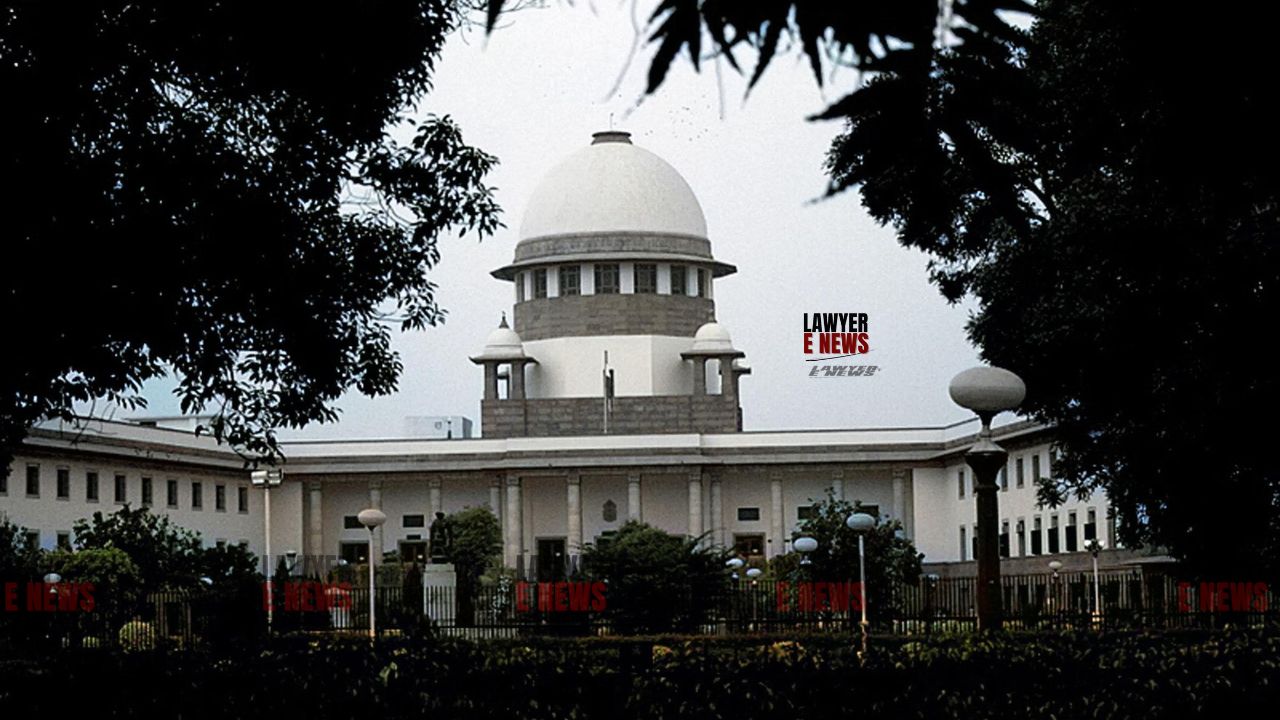-
by Admin
15 February 2026 2:36 AM



In a significant judgement , Supreme Court of India upheld a High Court judgment that set aside additional compensation awarded for fruit-bearing trees and a borewell on land acquired for an irrigation project. The Court, presided over by Justices Pankaj Mithal and R. Mahadevan, found that the evidence used to grant this compensation during a review was inadmissible and exceeded the permissible scope of review jurisdiction.
The appellant, Manik Panjabrao Kalmegh, owned land in Yavatmal, Maharashtra, which was acquired by the state in 2003 under the Land Acquisition Act, 1894, for a project by the Vidarbha Irrigation Development Corporation. The initial compensation awarded by the Land Acquisition Officer (LAO) included payment for the land and certain fruit-bearing trees, but excluded compensation for awala (Indian gooseberry) trees and a borewell on Survey No. 17.
Dissatisfied, Kalmegh sought a reference under Section 18 of the Land Acquisition Act, requesting a higher compensation, which was partially granted by the Civil Judge in 2015. In a subsequent review application, the court awarded additional compensation specifically for 1,824 awala trees and the borewell. The respondents appealed to the High Court, which set aside this award, stating that the review court relied on inadmissible evidence. Kalmegh then appealed to the Supreme Court.
The appellant argued that the compensation granted in the review application for the awala trees and borewell was valid, based on a "Second Joint Measurement Report" produced during the review stage. The Court, however, held that introducing new evidence at the review stage was impermissible. Justice Mithal noted, “Review proceedings cannot serve as an appellate mechanism to re-evaluate facts or introduce new evidence.”
Kalmegh argued for a cumulative 10% annual increase in land valuation, citing the Supreme Court's precedent in Ramrao Shankar Tapase v. Maharashtra Industrial Development Corporation (2020). The Court clarified that while an incremental increase in land value is often applied, cumulative increases are not an absolute rule and are subject to judicial discretion based on the facts of each case. Since the exemplar sale deed used for valuation did not apply cumulative increase, the Court upheld the non-cumulative 10% increase granted by the High Court.
The Supreme Court emphasized that review jurisdiction is limited and cannot serve as an appeal or an opportunity to introduce new claims or evidence. The review court’s reliance on the Second Joint Measurement Report, which had not been presented as evidence in the original reference proceedings, was found to be beyond the scope of review. “Inadmissible evidence introduced at the review stage cannot be the basis for awarding compensation,” the judgment stated.
The Supreme Court highlighted that the reference court initially denied compensation for the awala trees as they were deemed newly planted and not fruit-bearing at the time of acquisition. In the review stage, however, the reference court erroneously relied on the Second Joint Measurement Report to grant compensation. This report was not part of the original evidence and had no probative value.
The Court reaffirmed the High Court's decision, stating, “The review court acted beyond its jurisdiction by granting compensation based on inadmissible evidence.” The review jurisdiction, it observed, is strictly limited to correcting errors apparent on the face of the record and cannot be used as a substitute for appeal.
Kalmegh also contended that the valuation of his land should reflect a cumulative 10% increase per year, a practice that was discussed in Ramrao Shankar Tapase. The Supreme Court clarified that while cumulative annual increase may be applied in some cases, it is not an automatic entitlement. The Court held that, given the exemplar sale deed from 1994 and the valuation methods in earlier judgments relevant to the case, a non-cumulative 10% increase was appropriate.
Justice Mahadevan, writing for the bench, observed, “The discretion to grant a cumulative increase must be exercised based on the specific circumstances of the case and existing precedents.”
The Supreme Court dismissed Kalmegh's appeal, upholding the High Court's decision to quash the additional compensation for the awala trees and borewell. The Court reinforced the limitations on review jurisdiction, stressing that it cannot be used to introduce new evidence or re-litigate factual findings. Furthermore, the Court validated the non-cumulative 10% increase in land valuation, affirming it as consistent with precedent and judicial discretion.
Review Jurisdiction is Limited: The judgment reinforces that review proceedings cannot serve as an appeal or an opportunity to introduce new evidence.
Inadmissible Evidence in Review: Courts cannot rely on evidence introduced only during the review stage, as review is confined to errors on the face of the record.
Market Value Increment Discretion: The ruling clarifies that while annual cumulative increments in land valuation are permissible, they are not automatic and depend on judicial discretion.
Date of decision: 06/11/2024
